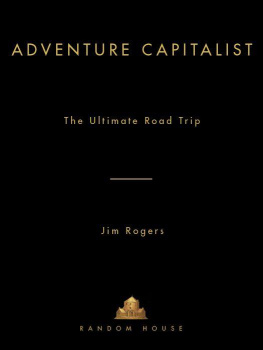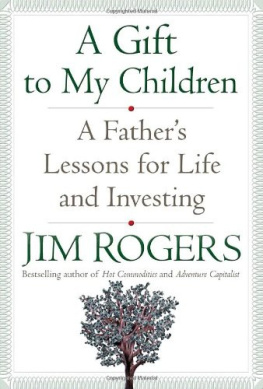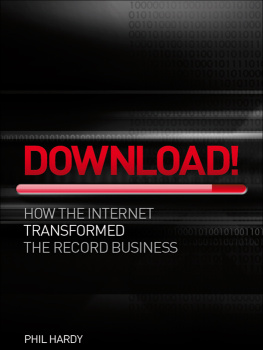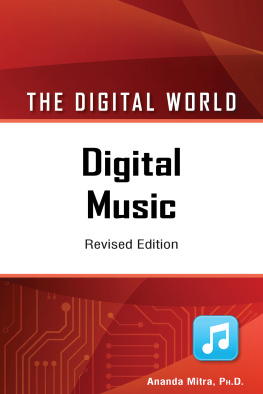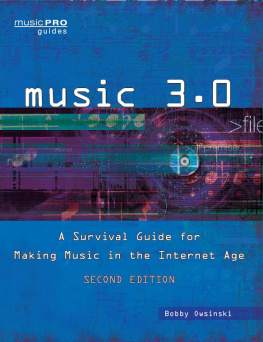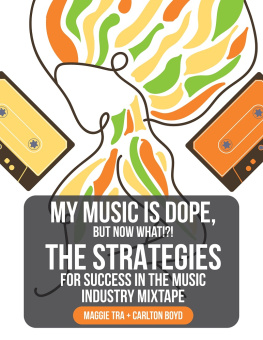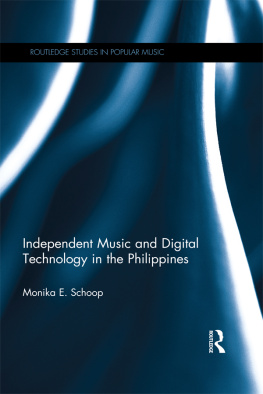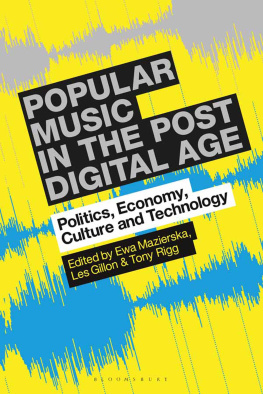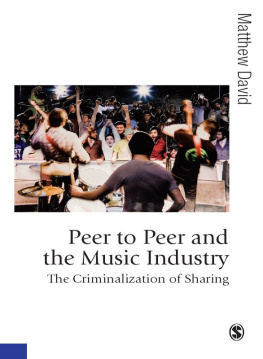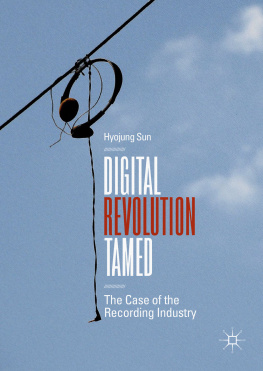The Death and Life of the Music Industry in the Digital Age
JIM ROGERS
Bloomsbury Academic
An imprint of Bloomsbury Publishing Plc
175 Fifth Avenue New York NY 10010 USA
50 Bedford Square London WC1B 3DP UK
www.bloomsbury.com
First published 2013
Jim Rogers, 2013
All rights reserved. No part of this publication may be reproduced or transmitted in any form or by any means, electronic or mechanical, including photocopying, recording, or any information storage or retrieval system, without prior permission in writing from the publishers.
No responsibility for loss caused to any individual or organization acting on or refraining from action as a result of the material in this publication can be accepted by Bloomsbury Academic or the author.
Library of Congress Cataloging-in-Publication Data
Rogers, Jim, 1969-
The death and life of the music industry in the digital age / by Jim Rogers.
pages cm
Includes bibliographical references and index.
ISBN 978-1-78093-160-9 (hardcover : alk. paper) ISBN 978-1-62356-001-0 (pbk. : alk. paper) 1. Sound recording industrySocial aspects. 2. Music and technology. I. Title.
ML3790.R63 2013
384dc23
2012041382
ISBN: 978-1-7809-3127-2
Contents
I would like to extend my sincere gratitude to colleagues and friends from the Dublin City University community (past and present), all of whom have served to generate a stimulating and engaging academic environment as well as providing a much appreciated source of friendship and support over recent years. In particular, Ciaran Dunne, Frank Byrne, Pat Brereton, Barbara OConnor, Mark OBrien, Farrel Corcoran, Sheamus Sweeney, Henry Silke, Declan Tuite, Bill Dorris, Neil OBoyle, Trish Morgan and Darryl DSouza. To Des McGuinness, particular thanks must go for all of his encouragement and generosity. Special thanks also go to Sergio Sparviero at Universtt Salzburg (Austria) and Anthony Cawley at Hope University, Liverpool (United Kingdom). I would like to express my sincere gratitude to Prof. Paschal Preston at Dublin City University, whose guidance and mentorship has been (and continues to be) immense, and extends way beyond the call of duty. A debt of gratitude must also be paid to Cormac McCanney for so frequently volunteering to act as a sounding board and for being such a reliable source of practical advice. To Katie Gallof, Emily Drewe and all the team at Bloomsbury, many thanks for your support and patience. I also wish to acknowledge the financial support provided by the Irish Research Council for Humanities and Social Sciences (IRCHSS) and the Irish Social Science Platform (ISSP) at different times during the course of my doctoral and postdoctoral research studies (which provide the empirical data for this book). However, the biggest thank you off all is reserved for Carol Redican... for her love and encouragement.
In some ways we are the canary down the mine, the first battle ground, but behind us goes anyone who creates anything that can be turned into data...
PETER GABRIEL
S ince the 1960s Simon Napier-Bell has worked as a songwriter, record producer and author. However, he is best known as the manager of a number of successful international recording acts including Eric Clapton and the Yardbirds, Marc Bolan and T-Rex, Boney-M, Japan and Wham. In a 2008 newspaper article entitled The Life and Crimes of the Music Biz, he somewhat gleefully describes the music industry as careering towards meltdown (The Observer, Music Monthly, 20 January 2008: 41). Focusing on six key music industry executives from the present and recent past, Napier-Bell dramatically outlines how just four major music companiesservitude (ibid.). In Napier-Bells sensational account, a core group of notorious moguls control and operate these companies and use bullying and thuggery to extract products and performance from their employees and artists. He accuses these companies of being intentionally fraudulent and practising systematic thievery from their artists (ibid.: 45). However, he now sees each passing week heaping more gloom on these majors who are seeing their record sales plummet, and are consequently losing their grip on the industry as the internet renders the machinery of the music corporation obsolete. The music companies, Napier-Bell concludes, were never the guardians of the music industry, rather they were its greedy bouncers who have now become irrelevant. The internet has produced, for artists and managers:
the moment to take things into their own hands. Artists no longer need to be held [by a label] for ten years, and they no longer need to sign away ownership of their recorded copyrights. These days, an artist working closely with his manager can ensure that everything is done in the artists best interest. (Napier-Bell, 2008: 41)
Napier-Bells account is decidedly sensational and we might consider that it reflects the biases he evolved over decades of negotiating and battling with the big industry players. Sensationalism aside, his perspective on the situation of the music industry in an evolving digital environment is illustrative of two commonly held and frequently relayed assumptions on the matter:
The first is that major music companies the bad guys of the music industry are facing potential ruin in light of recent and ongoing technological developments primarily centred around the internet.
The second is that such technological developments, which enable the distribution and promotion of music online, have revolutionized the industrys core structure by enabling interface between artists and consumers like never before. These developments are thus perceived as diminishing the power of major music companies in acting as intermediaries in artist-consumer relationships.
Such debates around the seemingly existential threats new digital technological innovations (and their uses and misuses) hold for the music industry have been common since the mid-to-late 1990s when unauthorized sharing of music became common on US university campus networks.
Popular music forms the basis of a major international industry that, as Patrik Wikstrm notes, possesses a nature that is as chaotic and unpredictable as any other complex dynamic system (2009: 170). The final decades of the twentieth century saw the music industry (itself a core constituent element of the broader media and cultural industries) significantly increase its importance in economic and employment terms. Since the mid-to-late 1990s, innovations in the realm of digital media technologies have evolved to threaten the medium-to-long-term viability of the record industry the music industrys most important economic sector over many decades. The unauthorized use of copyrighted material is undermining the record industrys ability to make money and has produced a crisis for a sector that had grown exponentially on the back of the CD-boom. Equally, the record industry has been contending with the challenge of moving from physical to digital formats. Moreover, if this is the moment to strike for independence and for musicians to rid themselves of corporate intermediaries and gatekeepers (as Napier-Bell celebrates), then the established music industry actors are indeed navigating turbulent waters.
The music industry, as we shall see, is much more than the record industry. As a whole, it has proved itself to be resilient and innovative in responding to the challenges of digitalization. This book is primarily concerned with examining and understanding how the music industry has negotiated the digital coalface. In the chapters that follow we will consider some of the key problems and challenges facing the music industry since the turn of the millennium, and some of the core response strategies of the industry over that period. We will consider what has changed and what has stayed the same. Ultimately we will seek to draw some conclusions regarding the form and extent of disruption that the digital revolution (which is feted and feared in equal measure) has visited upon this cultural industry sector.


